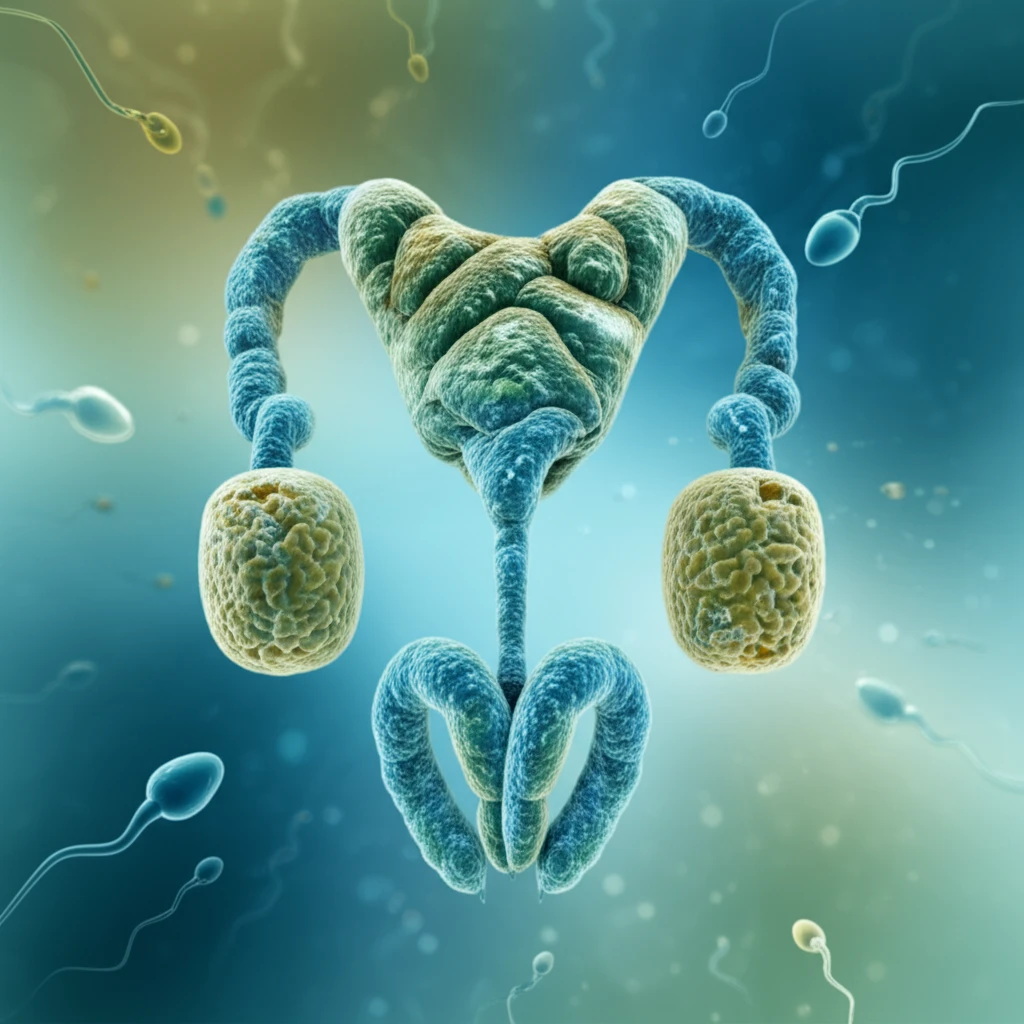
Decoding Male Infertility: How Autosomal Gene Research Offers New Hope
"Unlocking the Genetic Secrets of Sertoli Cell-Only Syndrome (SCOS) and Male Infertility"
Infertility affects millions of couples worldwide, and male infertility contributes significantly to these challenges. While factors like hormonal imbalances and lifestyle choices are well-recognized, genetics plays an increasingly understood role. Recent research is shedding light on the complex genetic underpinnings of male infertility, specifically focusing on autosomal gene defects and their association with conditions like Sertoli Cell-Only Syndrome (SCOS).
Sertoli Cell-Only Syndrome (SCOS) is a condition characterized by the absence of germ cells in the seminiferous tubules of the testes. This leads to an inability to produce sperm, resulting in infertility. While a deletion in the Y chromosome (azoospermia factor a) is a known genetic cause, many other instances of SCOS remain unexplained, prompting scientists to investigate other potential genetic factors.
A pivotal study by Koc et al. delves into the role of autosomal gene defects in patients with SCOS, marking a significant step forward in understanding the genetic landscape of male infertility. This research not only examines the genetic aspects but also considers the clinical background, providing a comprehensive view of the condition. By exploring these genetic connections, researchers hope to pave the way for improved diagnostic and therapeutic strategies.
Unraveling the Link Between Autosomal Genes and SCOS

The study by Koc et al. employs advanced genomic techniques to analyze the genetic makeup of individuals with SCOS. Using genome-wide analysis with single-nucleotide polymorphism and comparative genomic hybridization arrays, the researchers identified five genes located on autosomes that appear to be associated with SCOS. This discovery is particularly significant because it broadens our understanding beyond the Y chromosome, highlighting the potential involvement of other genes in infertility.
- HOXD9: This gene is involved in embryonic development and skeletal morphogenesis. Its role in spermatogenesis is not fully understood, but its involvement in developmental processes suggests it may influence testicular development and sperm production.
- SYCE1: This gene is crucial for the proper pairing and segregation of chromosomes during meiosis, the cell division process that produces sperm. Defects in SYCE1 can lead to impaired sperm production and infertility.
A Promising Path Forward in Fertility Research
The identification of autosomal gene defects associated with SCOS opens new avenues for research and potential clinical applications. By understanding the genetic mechanisms underlying male infertility, scientists and clinicians can develop more accurate diagnostic tools and personalized treatments. This research offers hope for couples facing infertility, potentially leading to improved outcomes and a greater chance of conceiving.
